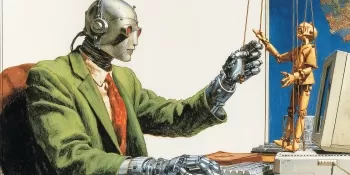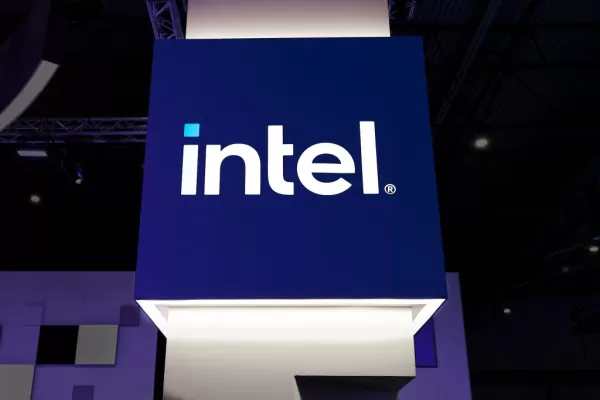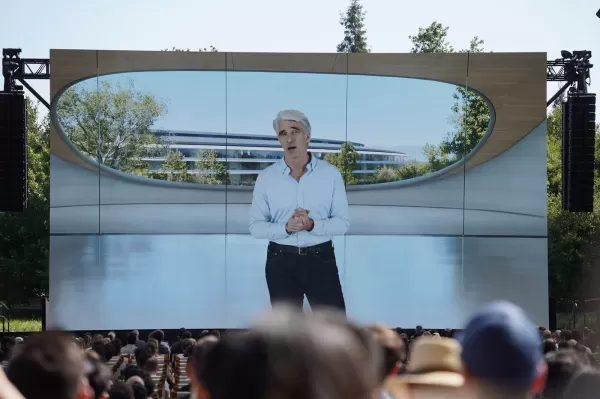Exploring AI Music: Billie Eilish & Twenty One Pilots Cover
The fascinating world where artificial intelligence meets music is opening up a whole new realm of possibilities for both artists and their fans. Take, for instance, the AI-generated cover of Twenty One Pilots' "Heathens," which now features the haunting vocals of Billie Eilish. This project not only showcases the innovative side of AI in music but also dives into the technical intricacies, the artistic implications, and the future landscape of AI-driven music.
The Rise of AI in Music
What is AI-Generated Music?
AI-generated music is a game-changer in the music industry. It involves using sophisticated algorithms that can compose, produce, or perform music. These algorithms dive deep into existing music to learn patterns, styles, and structures. Once they're trained, they can whip up new pieces across various genres and styles. This tech has come a long way, allowing creators to produce remarkably original and complex compositions. With AI music tools becoming more accessible, even those with little musical training can jump in and create their own tracks. As AI continues to evolve, the quality and creativity of AI-generated music are set to soar, reshaping the music industry in the process.
The Billie Eilish AI Cover: A Case Study
This AI cover of "Heathens" featuring Billie Eilish's AI-generated vocals is a testament to what's achievable with today's AI music technology. Tools like create.musicfy were used to train AI on Billie's unique voice, enabling Skeleton Boy (alex_file) to craft vocals that sound eerily similar to hers. The project's highlight is its ability to capture the nuances and stylistic elements of her voice. This not only opens up avenues for remixing and personalized content but also brings up ethical questions about copyright, authenticity, and the future of artistic expression.

Behind the Scenes: Create.musicfy and Skeleton Boy
Getting a glimpse into the tools and talent behind this cover sheds light on the AI music creation process. Create.musicfy stands out by allowing artists to clone voices, making it possible to generate vocals that sound just like a specific singer. By training the AI on vocal data, this platform helps develop models that can produce performances in a chosen style. Meanwhile, Skeleton Boy (alex_file) brought his expertise in crafting instrumentals to the table, adding a fresh twist to the original song. Together, their work shows how AI technology and human creativity can merge to offer new opportunities for artistic exploration.

Ethical and Legal Considerations of AI Music
Navigating Copyright and Ownership
The rise of AI-generated music brings up some tricky questions about copyright and ownership. Who gets to claim the copyright for an AI-generated song? Is it the developer of the AI, the person who trained it, or does it even belong to anyone? Current laws aren't quite ready to handle these new scenarios, which means we need new legal frameworks. For example, if an AI is trained on copyrighted material, like songs by Billie Eilish or Twenty One Pilots, is the AI-generated output a derivative work? If so, does it require the original copyright holders' permission? These are the kinds of questions we need to address to ensure AI music is produced and used ethically and legally.
Authenticity and Artistic Integrity
Another big question is whether AI-generated music can be considered truly creative or if it's just mimicking human creativity. Some argue that AI lacks the emotional depth and lived experiences needed to create meaningful art. Others see AI as a tool that can enhance an artist's creativity, opening up new sonic possibilities. The use of AI to clone existing artists' voices also raises ethical questions about permission and the impact on an artist's brand and reputation. It's crucial to have open discussions about these issues to establish ethical guidelines for AI in music.
How to Use AI Music Tools like Create.musicfy
Step-by-Step Guide to Creating AI-Generated Vocals
While the exact steps might differ depending on the platform, here's a general guide on how to create AI-generated vocals using tools like create.musicfy:
- Choose an AI Music Platform: Pick a platform like create.musicfy or a similar AI music generator.
- Collect Vocal Data: Gather high-quality recordings of the voice you want to emulate. The more data, the better the AI can capture the voice's nuances.
- Train the AI Model: Upload the vocal data to the platform and follow the instructions to train the AI model. This can take some time, depending on the data and model complexity.
- Compose Your Music: Use a digital audio workstation (DAW) or similar software to create your instrumental track.
- Generate AI Vocals: Use the trained AI model to create the vocal track. Input your lyrics and adjust settings like pitch, timing, and emotion.
- Mix and Master: Combine the AI-generated vocals with your instrumental track and master the final product for a professional sound.
Pricing for Create.musicfy and Similar AI Music Platforms
Understanding Subscription Models and Costs
The pricing for AI music platforms varies, depending on the features and usage limits. Some offer free trials or basic subscriptions with limited features, while others charge for premium access and higher usage limits. Create.musicfy, for instance, has different subscription tiers that give varying levels of access to their AI vocal cloning tech. Other platforms might use pay-per-use or credit-based systems. It's important to evaluate the pricing and choose a plan that fits your needs and budget.
Platform Free Tier Basic Plan Premium Plan Create.musicfy Limited $19/month $99/month Amper Music Limited $9.99/month $39.99/month Jukebox (OpenAI) Free N/A N/A Ecrett Music Limited $14.99/month $49.99/month
Pros and Cons of Using AI in Music Creation
Pros
- Increased efficiency and speed in music production
- Access to new creative possibilities and sonic landscapes
- Democratization of music creation, enabling more people to participate
- Personalization of music experiences based on individual preferences
- Potential cost savings in music production
Cons
- Ethical concerns about copyright, ownership, and authenticity
- Risk of homogenization and loss of unique artistic voices
- Potential displacement of human musicians and producers
- Dependence on technology and algorithms, potentially limiting creativity
- Need for clear legal frameworks and ethical guidelines
Core Features of AI Music Platforms
Key Functionalities and Benefits
AI music platforms come packed with features that can streamline music creation and empower artists. Some of the core functionalities include:
- AI-Powered Composition: Generate original musical pieces based on specified genres, styles, and moods.
- Vocal Cloning: Replicate the unique characteristics of a singer's voice to create AI-generated vocals.
- Automatic Mixing and Mastering: Optimize the sound quality of your music with AI-powered tools.
- Royalty-Free Music Libraries: Access vast libraries of music for use in your projects.
- Collaboration Tools: Work with other musicians and producers in real-time.
By using these features, artists can save time, explore new creative avenues, and produce professional-quality music without needing extensive technical skills.
Use Cases for AI Music
Exploring Applications Across Industries
AI music isn't just limited to the music industry; it has applications across various sectors:
- Music Production: Assisting musicians in composing, arranging, and producing their music.
- Film and Television: Generating original soundtracks and background music for films, TV shows, and commercials.
- Gaming: Creating dynamic and immersive soundtracks that adapt to gameplay.
- Advertising: Crafting catchy jingles and background music for ads.
- Personalized Music Experiences: Creating personalized playlists and music recommendations based on individual preferences.
As AI technology continues to evolve, we can expect to see even more innovative uses of AI music in the future.
FAQ
Is AI-generated music truly creative?
This is a tough question without a simple answer. Some believe AI can only mimic human creativity, while others see it as a tool that can expand an artist's creative horizons. It all depends on how you define creativity and view AI's role in art. Ultimately, whether AI-generated music is creative is subjective and depends on the listener's taste.
What are the legal implications of using AI to clone an artist's voice?
Using AI to clone an artist's voice without their permission raises significant legal and ethical issues. Copyright laws are complex and vary by jurisdiction, so it's crucial to get legal advice and the necessary permissions before proceeding. Failing to do so could lead to legal action and harm your reputation.
Will AI replace human musicians?
It's unlikely that AI will completely replace human musicians. Instead, AI is set to transform the music industry, changing how music is created and consumed. AI can be a valuable tool for musicians, assisting with various aspects of the creative process. However, it's doubtful that AI can ever replicate the emotional depth and unique perspectives that human musicians bring to their art. The future of music may well be a collaboration between human creativity and artificial intelligence.
Related Questions
How is AI changing the landscape of music?
AI is revolutionizing music in significant ways. It helps with composing, producing, and mastering tracks, making music creation more accessible to those with limited training. AI's ability to analyze listener preferences leads to more personalized music experiences. However, it also raises ethical and legal questions about copyright, ownership, and the authenticity of AI-generated content. The potential for AI to transform the industry is immense, enhancing accessibility, creativity, and personalization in music.
Related article
 OpenAI Upgrades ChatGPT Pro to o3, Boosting Value of $200 Monthly Subscription
This week witnessed significant AI developments from tech giants including Microsoft, Google, and Anthropic. OpenAI concludes the flurry of announcements with its own groundbreaking updates - extending beyond its high-profile $6.5 billion acquisition
OpenAI Upgrades ChatGPT Pro to o3, Boosting Value of $200 Monthly Subscription
This week witnessed significant AI developments from tech giants including Microsoft, Google, and Anthropic. OpenAI concludes the flurry of announcements with its own groundbreaking updates - extending beyond its high-profile $6.5 billion acquisition
 US Government Invests in Intel to Boost Domestic Semiconductor Production
The Trump administration has prioritized establishing U.S. leadership in artificial intelligence, with reshoring semiconductor production serving as a cornerstone strategy. Recent policy moves, including proposed tariffs and financial incentives, dem
US Government Invests in Intel to Boost Domestic Semiconductor Production
The Trump administration has prioritized establishing U.S. leadership in artificial intelligence, with reshoring semiconductor production serving as a cornerstone strategy. Recent policy moves, including proposed tariffs and financial incentives, dem
 Apple's Craig Federighi Admits AI-Powered Siri Had Serious Flaws in Early Stages
Apple Executives Explain Siri Upgrade Delay
During WWDC 2024, Apple originally promised significant Siri enhancements including personalized context awareness and app automation capabilities. However, the company recently confirmed delays in deliver
Comments (0)
0/200
Apple's Craig Federighi Admits AI-Powered Siri Had Serious Flaws in Early Stages
Apple Executives Explain Siri Upgrade Delay
During WWDC 2024, Apple originally promised significant Siri enhancements including personalized context awareness and app automation capabilities. However, the company recently confirmed delays in deliver
Comments (0)
0/200
The fascinating world where artificial intelligence meets music is opening up a whole new realm of possibilities for both artists and their fans. Take, for instance, the AI-generated cover of Twenty One Pilots' "Heathens," which now features the haunting vocals of Billie Eilish. This project not only showcases the innovative side of AI in music but also dives into the technical intricacies, the artistic implications, and the future landscape of AI-driven music.
The Rise of AI in Music
What is AI-Generated Music?
AI-generated music is a game-changer in the music industry. It involves using sophisticated algorithms that can compose, produce, or perform music. These algorithms dive deep into existing music to learn patterns, styles, and structures. Once they're trained, they can whip up new pieces across various genres and styles. This tech has come a long way, allowing creators to produce remarkably original and complex compositions. With AI music tools becoming more accessible, even those with little musical training can jump in and create their own tracks. As AI continues to evolve, the quality and creativity of AI-generated music are set to soar, reshaping the music industry in the process.
The Billie Eilish AI Cover: A Case Study
This AI cover of "Heathens" featuring Billie Eilish's AI-generated vocals is a testament to what's achievable with today's AI music technology. Tools like create.musicfy were used to train AI on Billie's unique voice, enabling Skeleton Boy (alex_file) to craft vocals that sound eerily similar to hers. The project's highlight is its ability to capture the nuances and stylistic elements of her voice. This not only opens up avenues for remixing and personalized content but also brings up ethical questions about copyright, authenticity, and the future of artistic expression.

Behind the Scenes: Create.musicfy and Skeleton Boy
Getting a glimpse into the tools and talent behind this cover sheds light on the AI music creation process. Create.musicfy stands out by allowing artists to clone voices, making it possible to generate vocals that sound just like a specific singer. By training the AI on vocal data, this platform helps develop models that can produce performances in a chosen style. Meanwhile, Skeleton Boy (alex_file) brought his expertise in crafting instrumentals to the table, adding a fresh twist to the original song. Together, their work shows how AI technology and human creativity can merge to offer new opportunities for artistic exploration.

Ethical and Legal Considerations of AI Music
Navigating Copyright and Ownership
The rise of AI-generated music brings up some tricky questions about copyright and ownership. Who gets to claim the copyright for an AI-generated song? Is it the developer of the AI, the person who trained it, or does it even belong to anyone? Current laws aren't quite ready to handle these new scenarios, which means we need new legal frameworks. For example, if an AI is trained on copyrighted material, like songs by Billie Eilish or Twenty One Pilots, is the AI-generated output a derivative work? If so, does it require the original copyright holders' permission? These are the kinds of questions we need to address to ensure AI music is produced and used ethically and legally.
Authenticity and Artistic Integrity
Another big question is whether AI-generated music can be considered truly creative or if it's just mimicking human creativity. Some argue that AI lacks the emotional depth and lived experiences needed to create meaningful art. Others see AI as a tool that can enhance an artist's creativity, opening up new sonic possibilities. The use of AI to clone existing artists' voices also raises ethical questions about permission and the impact on an artist's brand and reputation. It's crucial to have open discussions about these issues to establish ethical guidelines for AI in music.
How to Use AI Music Tools like Create.musicfy
Step-by-Step Guide to Creating AI-Generated Vocals
While the exact steps might differ depending on the platform, here's a general guide on how to create AI-generated vocals using tools like create.musicfy:
- Choose an AI Music Platform: Pick a platform like create.musicfy or a similar AI music generator.
- Collect Vocal Data: Gather high-quality recordings of the voice you want to emulate. The more data, the better the AI can capture the voice's nuances.
- Train the AI Model: Upload the vocal data to the platform and follow the instructions to train the AI model. This can take some time, depending on the data and model complexity.
- Compose Your Music: Use a digital audio workstation (DAW) or similar software to create your instrumental track.
- Generate AI Vocals: Use the trained AI model to create the vocal track. Input your lyrics and adjust settings like pitch, timing, and emotion.
- Mix and Master: Combine the AI-generated vocals with your instrumental track and master the final product for a professional sound.
Pricing for Create.musicfy and Similar AI Music Platforms
Understanding Subscription Models and Costs
The pricing for AI music platforms varies, depending on the features and usage limits. Some offer free trials or basic subscriptions with limited features, while others charge for premium access and higher usage limits. Create.musicfy, for instance, has different subscription tiers that give varying levels of access to their AI vocal cloning tech. Other platforms might use pay-per-use or credit-based systems. It's important to evaluate the pricing and choose a plan that fits your needs and budget.
| Platform | Free Tier | Basic Plan | Premium Plan |
|---|---|---|---|
| Create.musicfy | Limited | $19/month | $99/month |
| Amper Music | Limited | $9.99/month | $39.99/month |
| Jukebox (OpenAI) | Free | N/A | N/A |
| Ecrett Music | Limited | $14.99/month | $49.99/month |
Pros and Cons of Using AI in Music Creation
Pros
- Increased efficiency and speed in music production
- Access to new creative possibilities and sonic landscapes
- Democratization of music creation, enabling more people to participate
- Personalization of music experiences based on individual preferences
- Potential cost savings in music production
Cons
- Ethical concerns about copyright, ownership, and authenticity
- Risk of homogenization and loss of unique artistic voices
- Potential displacement of human musicians and producers
- Dependence on technology and algorithms, potentially limiting creativity
- Need for clear legal frameworks and ethical guidelines
Core Features of AI Music Platforms
Key Functionalities and Benefits
AI music platforms come packed with features that can streamline music creation and empower artists. Some of the core functionalities include:
- AI-Powered Composition: Generate original musical pieces based on specified genres, styles, and moods.
- Vocal Cloning: Replicate the unique characteristics of a singer's voice to create AI-generated vocals.
- Automatic Mixing and Mastering: Optimize the sound quality of your music with AI-powered tools.
- Royalty-Free Music Libraries: Access vast libraries of music for use in your projects.
- Collaboration Tools: Work with other musicians and producers in real-time.
By using these features, artists can save time, explore new creative avenues, and produce professional-quality music without needing extensive technical skills.
Use Cases for AI Music
Exploring Applications Across Industries
AI music isn't just limited to the music industry; it has applications across various sectors:
- Music Production: Assisting musicians in composing, arranging, and producing their music.
- Film and Television: Generating original soundtracks and background music for films, TV shows, and commercials.
- Gaming: Creating dynamic and immersive soundtracks that adapt to gameplay.
- Advertising: Crafting catchy jingles and background music for ads.
- Personalized Music Experiences: Creating personalized playlists and music recommendations based on individual preferences.
As AI technology continues to evolve, we can expect to see even more innovative uses of AI music in the future.
FAQ
Is AI-generated music truly creative?
This is a tough question without a simple answer. Some believe AI can only mimic human creativity, while others see it as a tool that can expand an artist's creative horizons. It all depends on how you define creativity and view AI's role in art. Ultimately, whether AI-generated music is creative is subjective and depends on the listener's taste.
What are the legal implications of using AI to clone an artist's voice?
Using AI to clone an artist's voice without their permission raises significant legal and ethical issues. Copyright laws are complex and vary by jurisdiction, so it's crucial to get legal advice and the necessary permissions before proceeding. Failing to do so could lead to legal action and harm your reputation.
Will AI replace human musicians?
It's unlikely that AI will completely replace human musicians. Instead, AI is set to transform the music industry, changing how music is created and consumed. AI can be a valuable tool for musicians, assisting with various aspects of the creative process. However, it's doubtful that AI can ever replicate the emotional depth and unique perspectives that human musicians bring to their art. The future of music may well be a collaboration between human creativity and artificial intelligence.
Related Questions
How is AI changing the landscape of music?
AI is revolutionizing music in significant ways. It helps with composing, producing, and mastering tracks, making music creation more accessible to those with limited training. AI's ability to analyze listener preferences leads to more personalized music experiences. However, it also raises ethical and legal questions about copyright, ownership, and the authenticity of AI-generated content. The potential for AI to transform the industry is immense, enhancing accessibility, creativity, and personalization in music.
 OpenAI Upgrades ChatGPT Pro to o3, Boosting Value of $200 Monthly Subscription
This week witnessed significant AI developments from tech giants including Microsoft, Google, and Anthropic. OpenAI concludes the flurry of announcements with its own groundbreaking updates - extending beyond its high-profile $6.5 billion acquisition
OpenAI Upgrades ChatGPT Pro to o3, Boosting Value of $200 Monthly Subscription
This week witnessed significant AI developments from tech giants including Microsoft, Google, and Anthropic. OpenAI concludes the flurry of announcements with its own groundbreaking updates - extending beyond its high-profile $6.5 billion acquisition
 US Government Invests in Intel to Boost Domestic Semiconductor Production
The Trump administration has prioritized establishing U.S. leadership in artificial intelligence, with reshoring semiconductor production serving as a cornerstone strategy. Recent policy moves, including proposed tariffs and financial incentives, dem
US Government Invests in Intel to Boost Domestic Semiconductor Production
The Trump administration has prioritized establishing U.S. leadership in artificial intelligence, with reshoring semiconductor production serving as a cornerstone strategy. Recent policy moves, including proposed tariffs and financial incentives, dem
 Apple's Craig Federighi Admits AI-Powered Siri Had Serious Flaws in Early Stages
Apple Executives Explain Siri Upgrade Delay
During WWDC 2024, Apple originally promised significant Siri enhancements including personalized context awareness and app automation capabilities. However, the company recently confirmed delays in deliver
Apple's Craig Federighi Admits AI-Powered Siri Had Serious Flaws in Early Stages
Apple Executives Explain Siri Upgrade Delay
During WWDC 2024, Apple originally promised significant Siri enhancements including personalized context awareness and app automation capabilities. However, the company recently confirmed delays in deliver





























